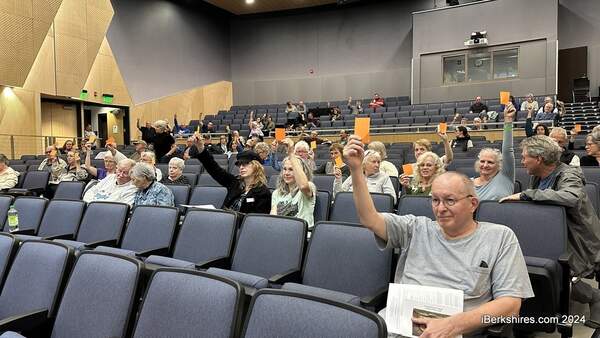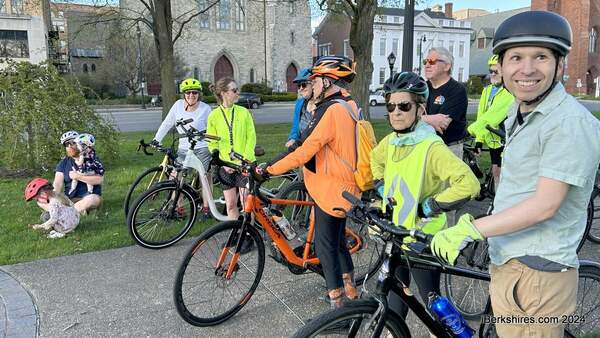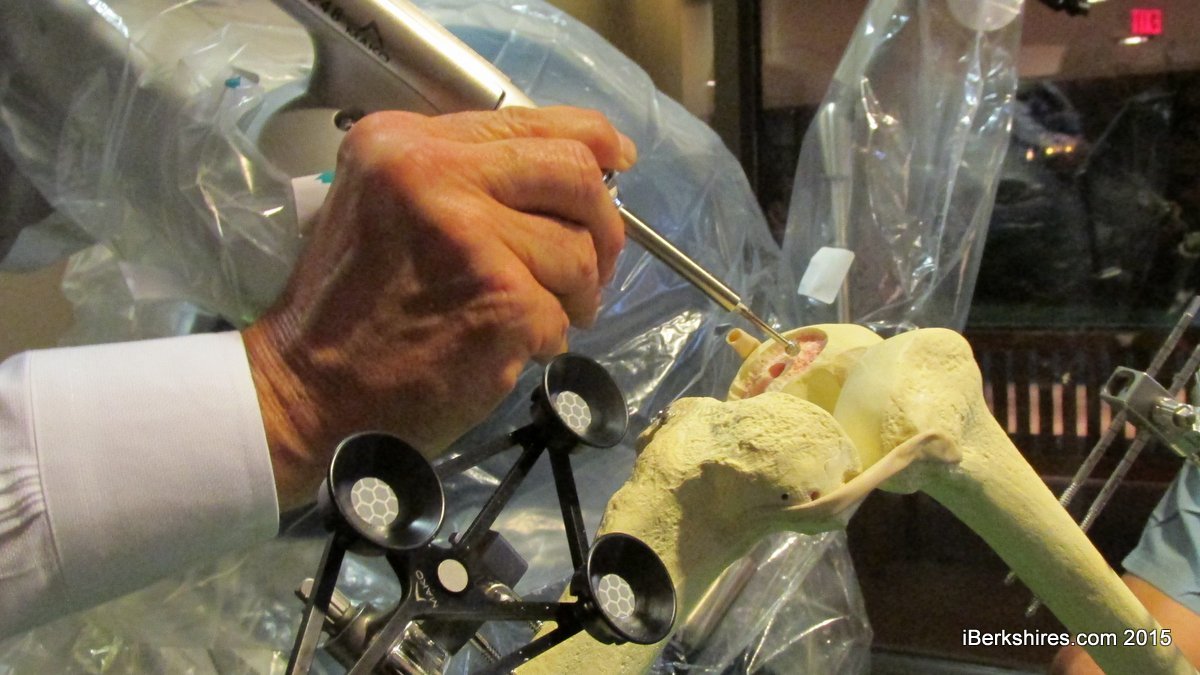
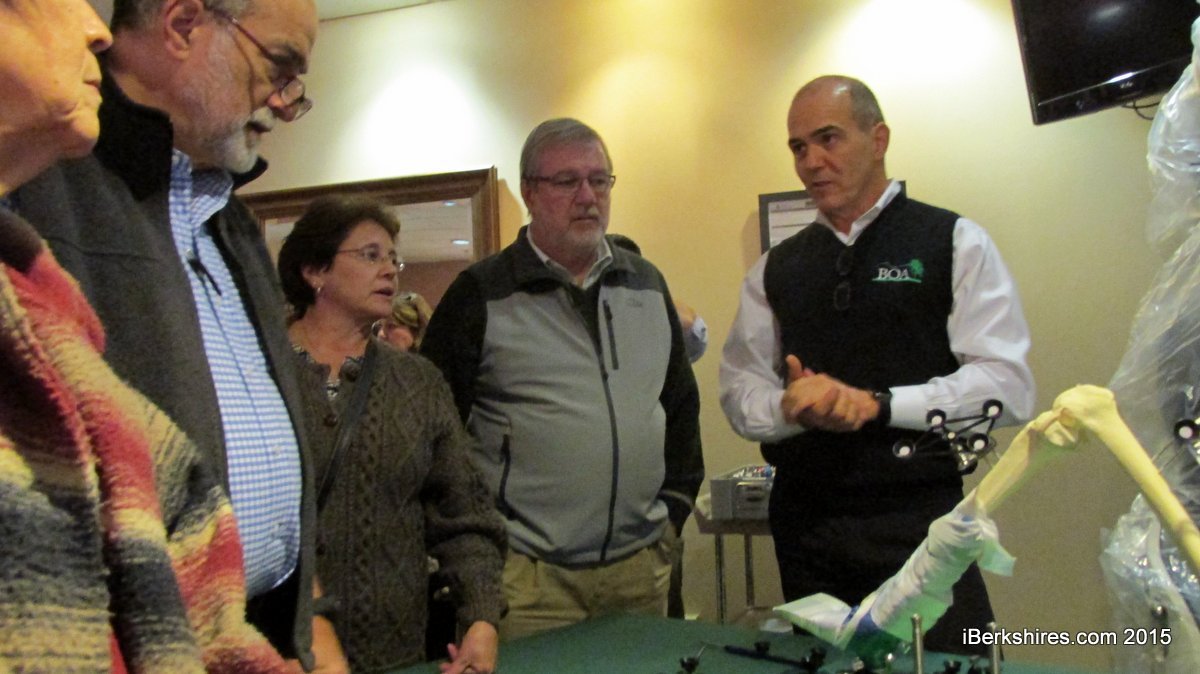
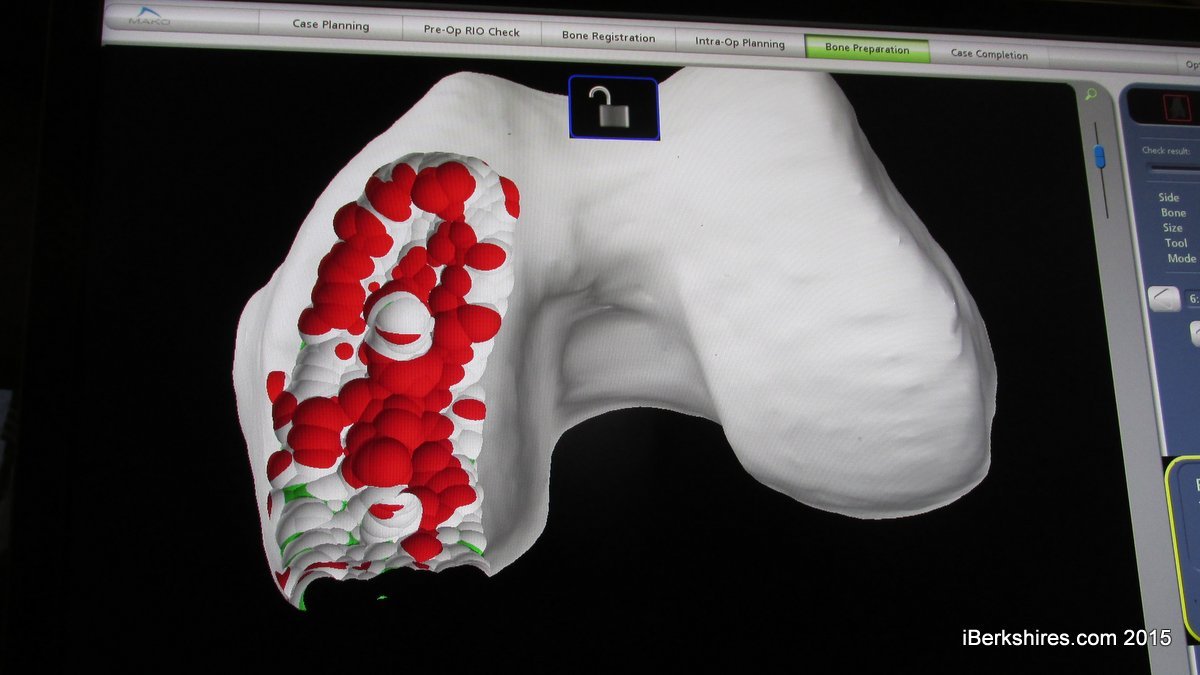
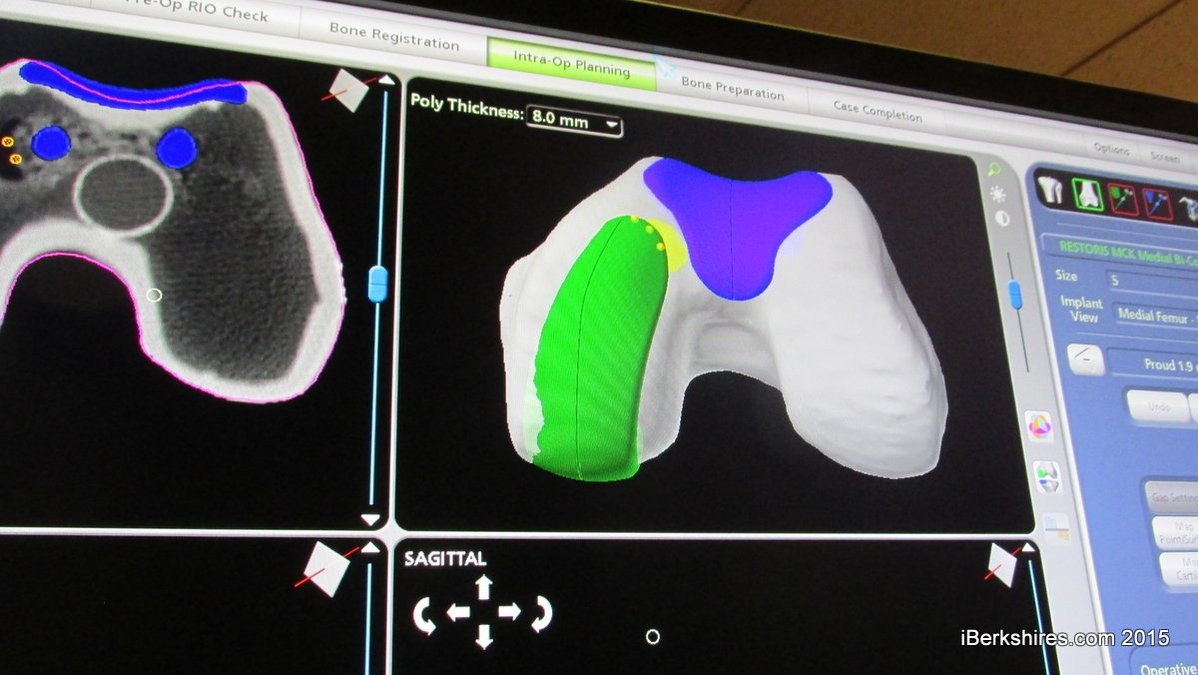
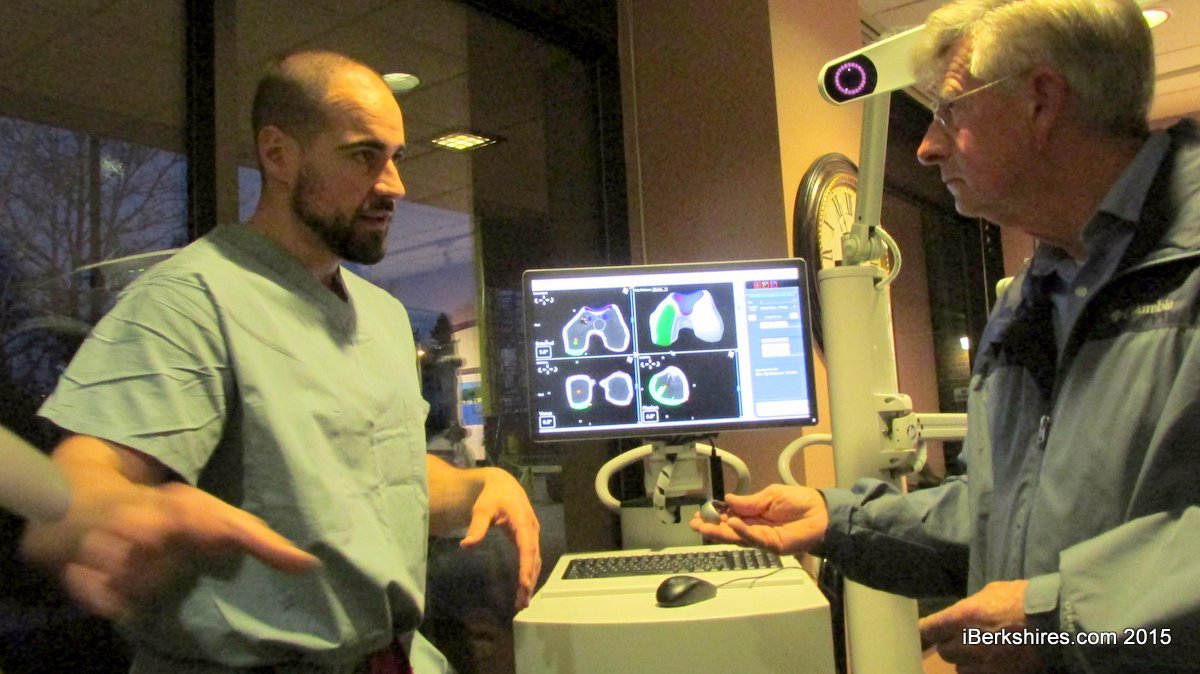
Berkshire Medical Center Demonstrates Surgical Robotic Arm
PITTSFIELD, Mass. — Dr. Kevin Mitts of Berkshire Orthopaedic Associates pushed against the bur, attempting to move the robotic drill into a different area of the leg bone.
But since the Mako Robotic Arm Interactive System was programmed to cut into a specific area, it resisted his efforts.
"It locks you in," he told the curious onlookers at Tuesday night's demonstration at Berkshire Medical Center. "It won't let you go elsewhere."
The new technology is designed to aid the accuracy of orthopedic surgeons in the operating room. The robotic arm, a product of Stryker Corp., a leader in orthopedic medical technology, has been in use at BMC for a few months.
"When we're doing a joint replacement, our goal is to insert the implanted joint as precisely as possible," said Dr. Jonathan Cluett, of Orthopedic Associates of Northern Berkshire. "The robotic system, with a very high degree of accuracy and precision, ensures that we are placing the implants exactly where we want them to be."
It starts with a computerized axial tomography scan, or CAT scan, of the joint that is then uploaded into the Mako's programming to create a 3D virtual model. The software pinpoints the diseased bone area to be removed to fit the new artificial joint and informs the arm where to cut. The surgeons are still guiding the cutting but with a higher level of precision.
John Hatchell, a product specialist with Stryker, explained how the program created the template for cutting away the diseased bone using the CAT scan and one of the eight different size partial knee replacement components.
Devices set up around the surgical site created an optic field for the 3D visualizations that guide the drill, but surgeons would still be able to modify during the surgery.
"This is like a series of checks and balances to guarantee that every thing we plan is done in surgery," he said.
"We use the burrer to fit this thing perfectly, so the transition — where the bone ends and the component begins — would be like running your hand against this table ... now that's something that's unique to this technology."
BMC got the Mako system in early fall and is using it in surgery several times week. Surgeons are hoping the new technology will inevitably result in better patient outcomes and longer lasting knee and hip replacements.
"It's just like if you were getting new tires on your car, you would want to ensure the wheels are in proper alignment so you didn't wear out the tires unevenly," Cluett said. "It's the same type of thing when you're getting a new joint implanted, you want the alignment to be precise so it doesn't wear out too early. ...
"There's a lot of data to support the idea that the better you implant a joint, the longer it will last."
Cluett said more than a half-million people are getting knee replacements each year, with the expectation that number will rise to 3 million over the next decade or so. While most replacements had been reserved for people in their 70s and 80s, patient age has been dropping into the 50s and 60s.
"We do 700 joint replacements a year," he said. "That number has been growing, the number at this hospital has been growing quite dramatically."
The Mako system can currently be used on partial knee replacements and for hip replacements. The U.S. Food & Drug Administration recently approved use of the robotic arm for total knee replacement.
'There's a lot of data to support the idea that the better you implant a joint, the longer it will last.' — Dr. Jonathan Cluett
The use of the technology would be up to the patient, and one of the goals of Tuesday's demonstration was to provide the community with information about the process. BMC's lobby was filled with both area residents and hospital employees checking out the new equipment.
Roger Manzolini of Richmond peppered Hatchell with questions about the functioning of the device.
While acknowledging he might need a replacement joint at some point, Manzolini, an engineer, said he was most interested in the technology.
"I am pleased with how technology is being used smartly in medicine," he said.
Cluett is as well.
"I think it's terrific, it's always fun to have technology that allows us to do our job more effectively," he said. "And this is an example of such technology."
Tags: BMC, medical technology, surgery,


